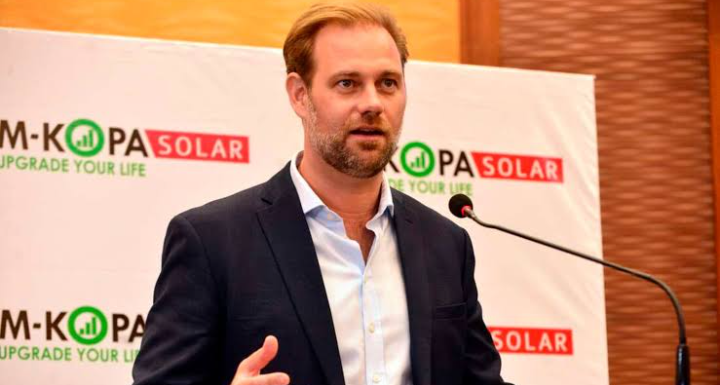M-Kopa was among Kenya’s most well-financed fintech firms, having secured over $245 million in equity financing since its founding in 2011.
Initially, M-Kopa specialized in selling solar-powered electrical equipment on a pay-as-you-go basis but later diversified into health insurance and offered credit for various products like smartphones and electric motorcycles.
With a customer base of more than 3 million people in Kenya, Uganda, Nigeria, and Ghana, the company has disbursed over $1 billion in cumulative credit.
However, with a grim outlook looming, M-Kopa is now locked in a tax evasion battle with the Kenya Revenue Authority (KRA).
In an attempt to justify its tax position, the firm claims it cannot collect KSh 308.5 million owed by 47,625 customers, to whom they supplied lighting kits on credit across the country.
Sources familiar with the situation disclosed to leaked.co.ke that M-Kopa has grossly inflated the list of debtors, which is reportedly fewer than 20,000, by adding over 27,000 phantom debtors.
The inflated debtor list is being used as a defense to shift the blame for the company’s financial troubles onto customer debt.
According to M-Kopa, they supplied lights, solar panels, multi-device chargers, and pay-as-you-go SIM cards on credit.
The company is currently facing KRA at the Tax Appeals Tribunal, seeking to have billions of shillings owed by so-called “hardcore clients” written off.
These clients are accused of defaulting on repayments and ignoring attempts at communication.
M-Kopa is pushing for KSh 308,512,947 to be written off, but KRA has refused, asserting that the company is not serious about resolving the issue.
M-Kopa scaled back its supply of lighting kits after the government launched its last-mile power project.
In response, the directors devised a plan to write off inflated debts in a bid to protect the company from financial collapse.
To gain sympathy from the tribunal, M-Kopa presented a report arguing that the costs of pursuing the 47,625 blacklisted customers would be prohibitive, amounting to KSh 952.5 million if handled individually or KSh 5.22 billion if taken to court.
The company even claimed that out-of-court settlements would still cost KSh 1.77 billion.
KRA demanded KSh 308,512,947 from M-Kopa for the 2016 fiscal year, a figure later reduced to KSh 193,736,915.
However, KRA remained unconvinced that M-Kopa was making genuine efforts to recover the debt.
Despite the tribunal ruling in favor of M-Kopa on the grounds that the recovery costs exceeded the amount owed, the company continues to pursue payments from its “hardcore customers,” raising concerns about KRA potentially losing out on revenue.
M-Kopa has also concealed debts from customers operating electric bikes on credit, categorizing them under “hardcore customers” to evade taxes.
In addition, M-Kopa has faced a lawsuit filed by a Kenyan, Patrick Kamau, over alleged infringement of intellectual property rights, alongside Safaricom.
The company is struggling to repay a KSh 1.8 billion loan from General Investment Management, a firm founded by former U.S. Vice President Al Gore.
All eyes are now on KRA to determine if it will escalate the matter to the High Court to pursue the tax owed by M-Kopa.
In its defense, M-Kopa argued that it is incorporated in the United Kingdom and thus should not be subject to Kenyan taxes under the Kenya-UK Double Taxation Treaty.
However, the tribunal ruled that M-Kopa’s management decisions are made in Kenya, where its CEO, CFO, and CCO are based.
The company is liable for part of the $6.8 million tax bill, although the exact amount is yet to be finalized.
The tribunal also noted that M-Kopa had failed to provide sufficient evidence to prove that core operational decisions were made outside Kenya, in line with local tax laws.
This failure ultimately made the company liable for Kenyan taxes.





















Add Comment